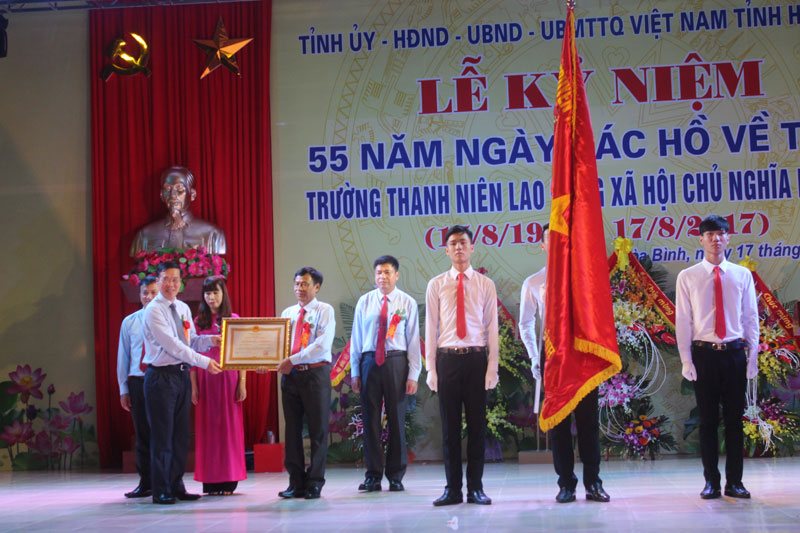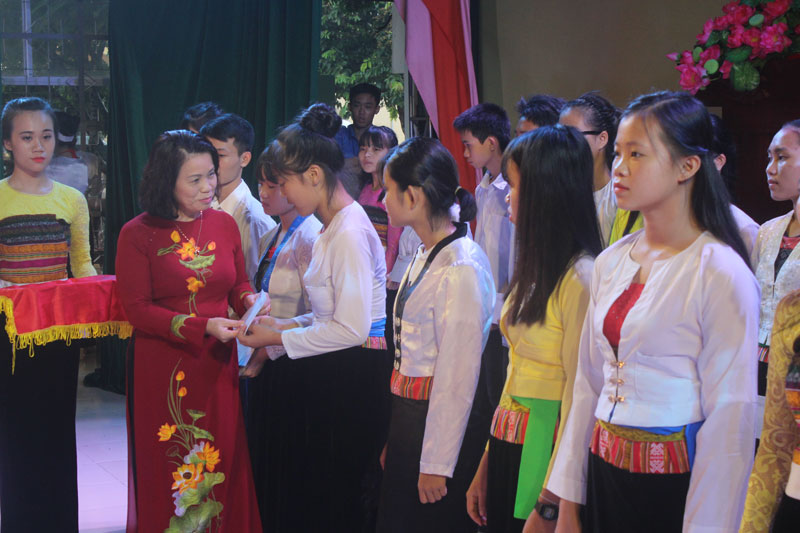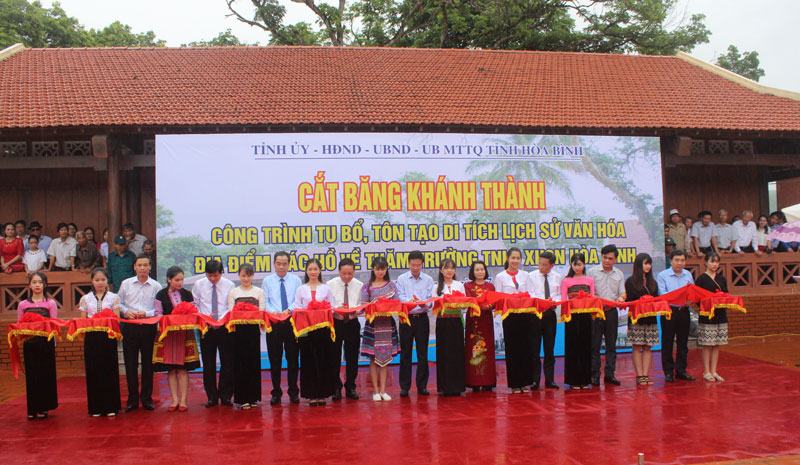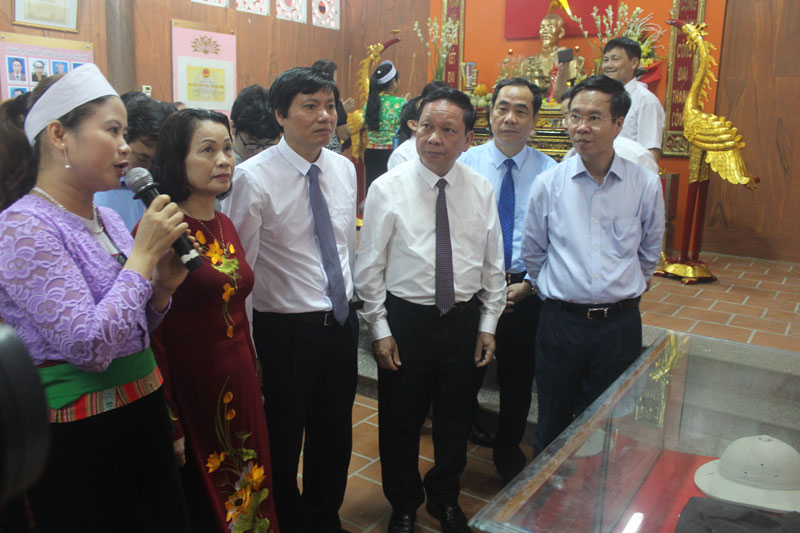
(HBO) – A ceremony celebrating 55 years of the late President Ho Chi Minh’s visit to Hoa Binh high school of young socialist workers, now known as Hoa Binh ethnic boarding school, took place in the northern province of Hoa Binh on August 17.
Attending
the event were Politburo member, Secretary of the Party Central Committee and
head of the Party Central Committee’s Commission for Information and Education
Vo Van Thuong, Secretary of the provincial Party Committee Bui Van Tinh, Vice
Secretary of the provincial Party Committee and Chairman of the provincial
People’s Council Nguyen Van Quang, Chairman of the provincial People’s
Committee Nguyen Van Quang and Vice President of the Vietnam Fatherland Front
(VFF)’s Central Committee Bui Thi Thanh.

Head of the Party Central Committee’s Commission for Information and
Education Vo Van Thuong presents Labour Order, third class, to Hoa Binh ethnic
boarding school.
Vice President of the VFF Central Committee
Bui Thi Thanh presents gifts to lecturers, students of Hoa Binh high school of
young socialist workers.
The school was founded on April 1, 1958 under
the initiative of the Hoa Binh provincial Party Committee. Despite difficulties
and challenges, lecturers and students worked hard to fulfill assigned tasks,
turning the school into a model nationwide.
Head of
the Party Central Committee’s Commission for Information and Education Vo Van
Thuong cut the ribbon to inaugurate the relic site marking Uncle Ho’s visit to
the school.
On August 17, 1962, the late President visited
the school and left the autograph "Must-have: study well, work well. Keep
striving, keep progressing”.
Over the past years, the Hoa Binh ethnic
boarding high school has reaped important successes, leading the provincial
high schools and ethnic schools nationwide in terms of teaching and learning
quality. Thanks to gained achievements, the school has been honoured with the
Party and State distinctions such as the Labour Order, first, second and third
class, the Independence Order, third class, the Flag of the government,
Head of
the Party Central Committee’s Commission for Information and Education Vo Van
Thuong and local leaders contemplate artifacts and photos at display
house.
The school’s lecturers and students also vowed
to continue building on the past achievements to maintain its current
status.
Vo Van Thuong presented Labour Order, third
class, to the school in honour of its education-training achievements from
2011-2012 to 2015-2016 academic years.
Bui Thi Thanh presented gifts of the VFF’s
Central Committee to the school.
After cutting the ribbon to inaugurate the relic
site marking Uncle Ho’s visit to the school, Thuong and provincial leaders
offered incense, visited the site’s display house, planted trees and released
fish on the premises.
Hoa Binh province is undergoing a dynamic transformation amid Vietnam’s national digital transition. Building on Poliburo’s Resolution No. 57-NQ/TW on breakthroughs in science, technology, innovation, and national digital transformation, the province has rolled out a wide range of practical action plans. A standout initiative is the "Digital Literacy for All” movement, an effort to ensure that no one is left behind in the digital era.
Hoa Binh province is undergoing a dynamic transformation in the wake of the national digital transformation movement. Building on Resolution No. 57-NQ/TW of the Politburo on breakthroughs in science, technology, innovation, and national digital transformation, the province has implemented a wide range of practical action plans. A standout initiative is the "Digital Literacy for All” movement ambitious effort to ensure that no one is left behind in the digital age.
With a spirit of unity and proactive problem-solving, the Party Committee, the government and the people of Dong Lai Commune (Tan Lac District) have made great strides in implementing the resolutions of the 24th Party Congress of the commune for the 2020 - 2025 term. Focusing on leadership and practical actions, the commune has brought the Party’s resolutions into daily life, creating strong impacts and pushing the local development forward.
Amid the nationwide push for digital transformation, young people in Hoa Binh Province are stepping up as dynamic pioneers, applying technology to enhance Youth Union operations and expand the reach of youth-led initiatives. Through creativity and adaptability, Youth Union organizations at all levels have introduced a series of practical solutions, contributing to modern governance and community development.
In recent years, An Nghia commune, located in Lac Son district, has stepped up administrative reform, focusing on improving the quality and efficiency of its single-window service unit for receiving and processing administrative procedures. These improvements have helped create favourable conditions for local residents and organisations to handle administrative procedures, contributing to the commune’s broader socio-economic development.
The Prime Minister-approved master plan to develop the multi-use value of forests ecosystems through 2030, with a vision to 2050, aims to improve the management and sustainable use of forest resources, create jobs, increase incomes, and improve the living standards of ethnic minorities, people in mountainous and remote areas, forest workers and those living near forests.






